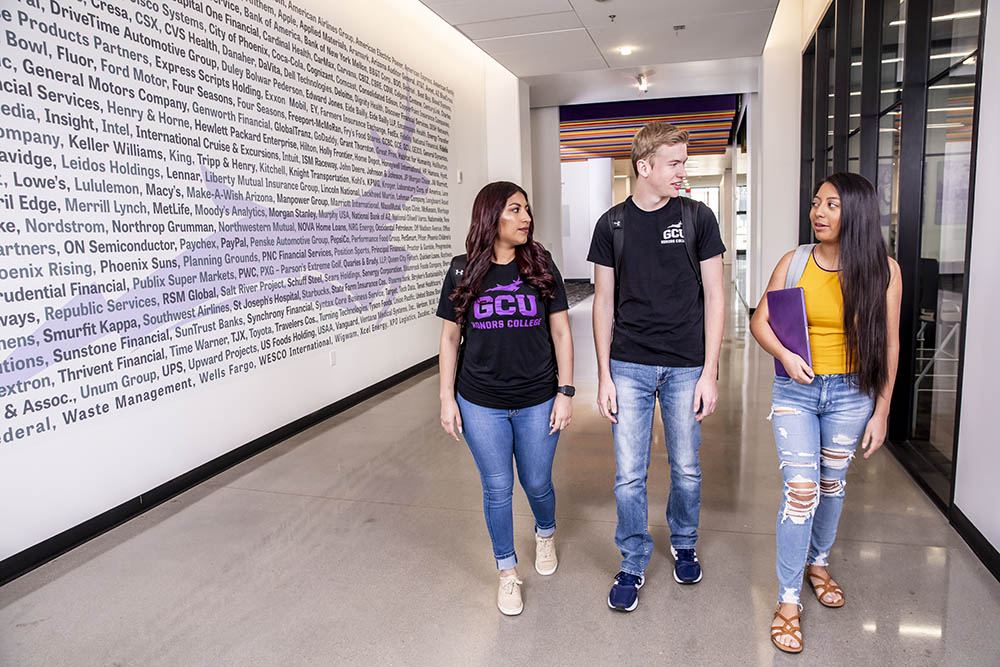
What started as an institute in 2013 has become a burgeoning, elite department.
And the numbers back it up.
Grand Canyon University's Honors College, which transitioned from an institute to a full college in 2015, has grown from 59 students during its inaugural year to a current enrollment of nearly 3,000. It's quite a feat for the college as it prepares to celebrate its 10th anniversary this year, the same year the University is recognizing another milestone: the 75th year of its founding.
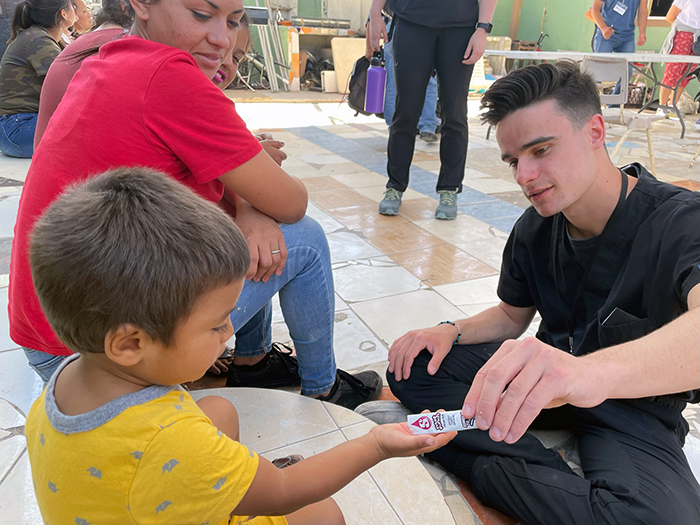
The college has sent students all over the world to participate in short-term global education programs, mission trips, human outreach programs and traditional study.
And GCU’s chapter of the National Society of Collegiate Scholars, which makes its home in the Honors College, earned Diamond Status in 2022-23, a distinction awarded to the top-performing chapter in the country.
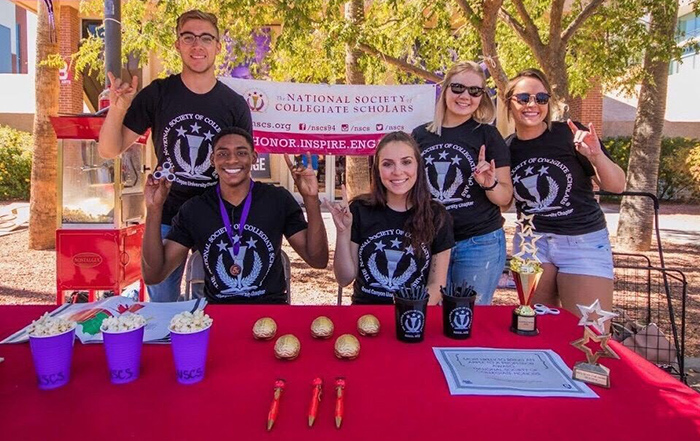
GCU, with help from the Honors College, also produced its first publication of the Canyon Journal for Undergraduate Research (CJUR) in 2023.
At the same time, the academic institution maintained GCU’s Commitment to Service and Service-Minded Leadership as it teamed with CityServe and Sleep in Heavenly Peace to build and deliver 70 bunk beds for local families in need.
“For an honors program, you expect there to be an academic experience and an enriched curriculum with faculty-student collaboration,” said Dean Dr. Breanna Naegeli. “Learners don't want an honors experience to simply feel like 'more work,' which is often how an honors experience can be perceived.
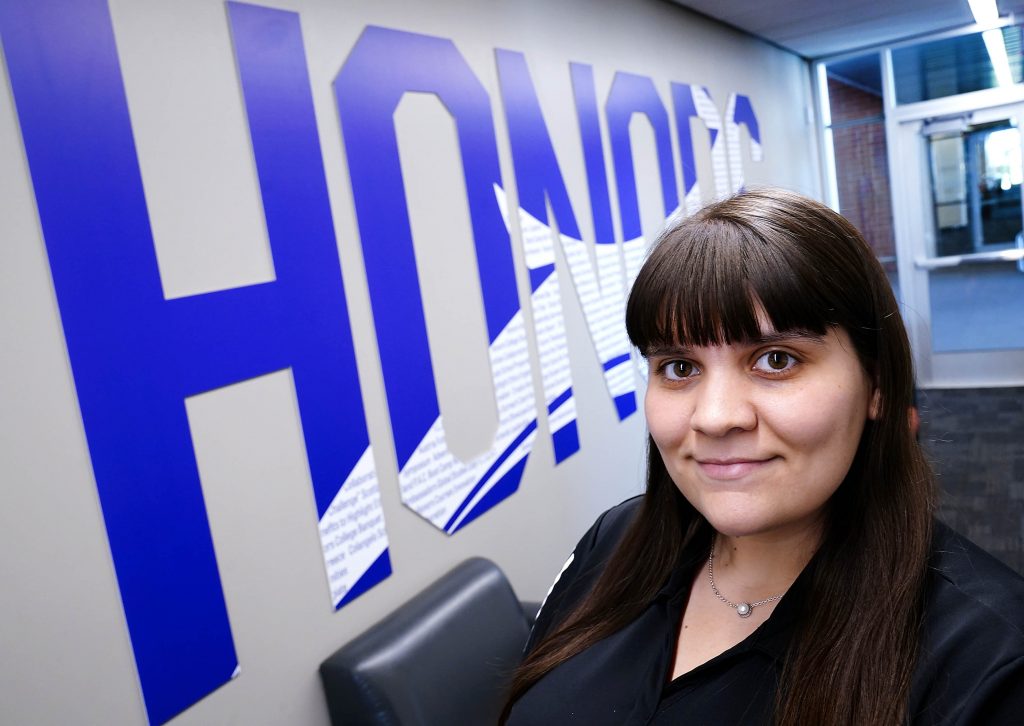
"When designing the Honors College at GCU, we wanted the experience to feel deeply enriching and well-rounded. We aspired for students to feel engaged by their faculty and staff, we wanted the curriculum to feel relevant and purposeful, and we wanted students to feel as though the program prepared them to fulfill their purpose and all pursuits beyond college."
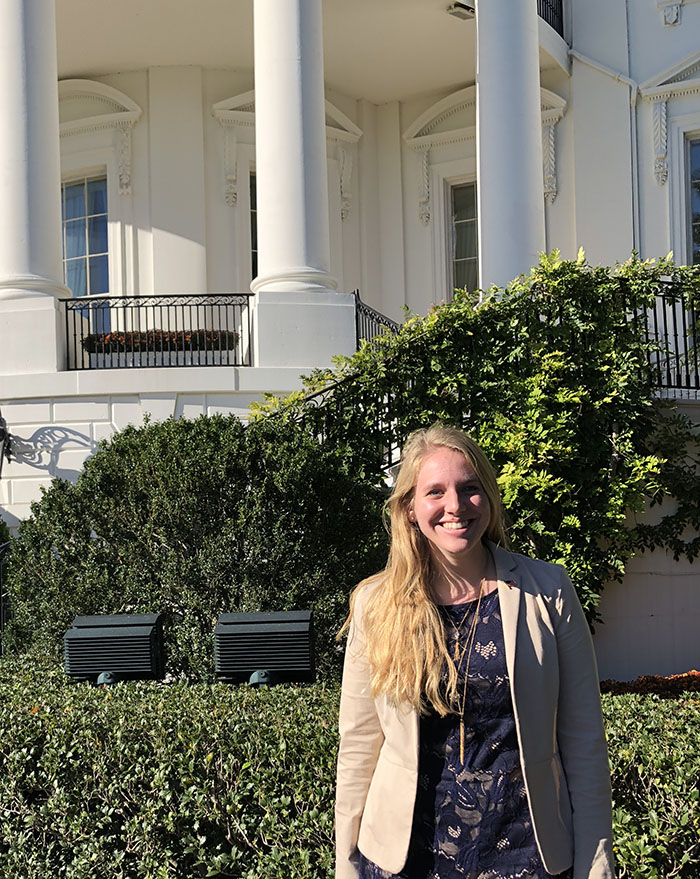
Global and mission trips provided more opportunities for students, who were mentored by upperclassmen, faculty, industry leaders and professionals. They have advanced to work at the likes of the White House, Navy, Federal Bureau of Investigations, Honeywell Aerospace, Analog Devices, IBM, and Charles Schwab and Edward Jones investment firms.
“We want learners to feel as though the Honors College is not strictly an academic experience but something that elevates how they develop and prepare for life after college," Naegeli said.
Eleven months after Honors alumni Erik Yost, Nathan Olsen and Camden Marasco started STELLAR (Space, Technology and Engineering for Launching Life Application Research), they worked together 11 months later with their team of fellow undergraduates to produce and send a microbial fuel cell to the International Space Station in an attempt to study clean energy around the world. GCU President Brian Mueller signed the battery container holding the fuel cell.
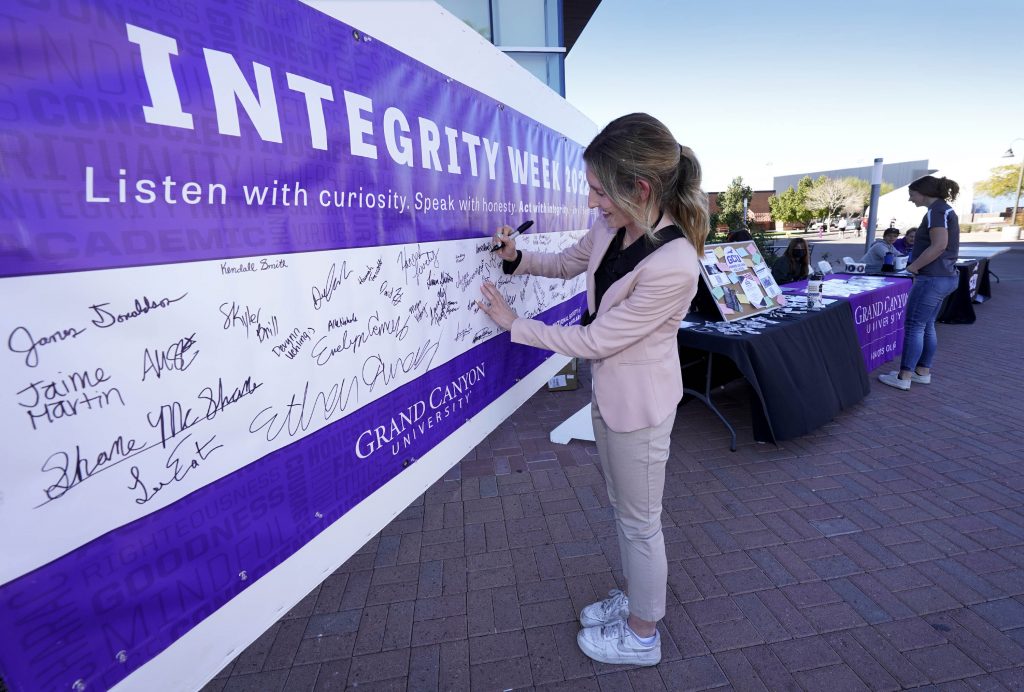
The college has treasured the crowning and community engaging efforts of alumna Adesuwa Osayaren, a 2018 Miss Nations of the World who serves as a community coordinator for New Reach Education; Jacqueline Thomas, 2019 Miss Arizona and founder of Lady Leaders, LLC; Aubrey Grasz, 2022 Miss Nebraska Volunteer; and Faron Mehdi, 2022 Miss Teen USA.
The growth of the Honors College, which has produced more than 2,200 alumni, has been impressive, considering past and present students and faculty who navigated through the COVID-19 pandemic.
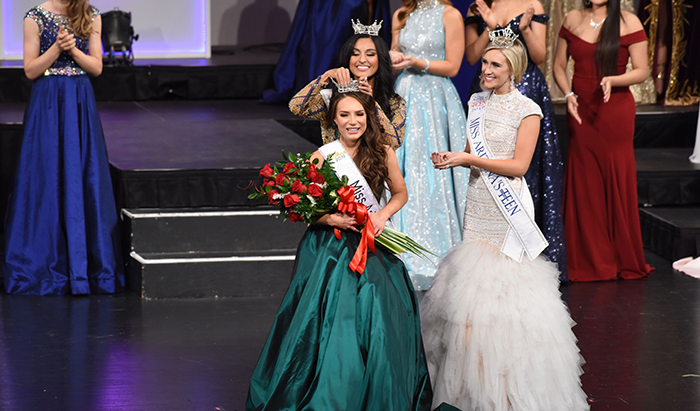
“Many of them experienced major disruptions in their high school experience during their transition into higher education,” Naegeli said. “They all experienced a two-year pandemic and what was likely a fairly untimely period of their life.
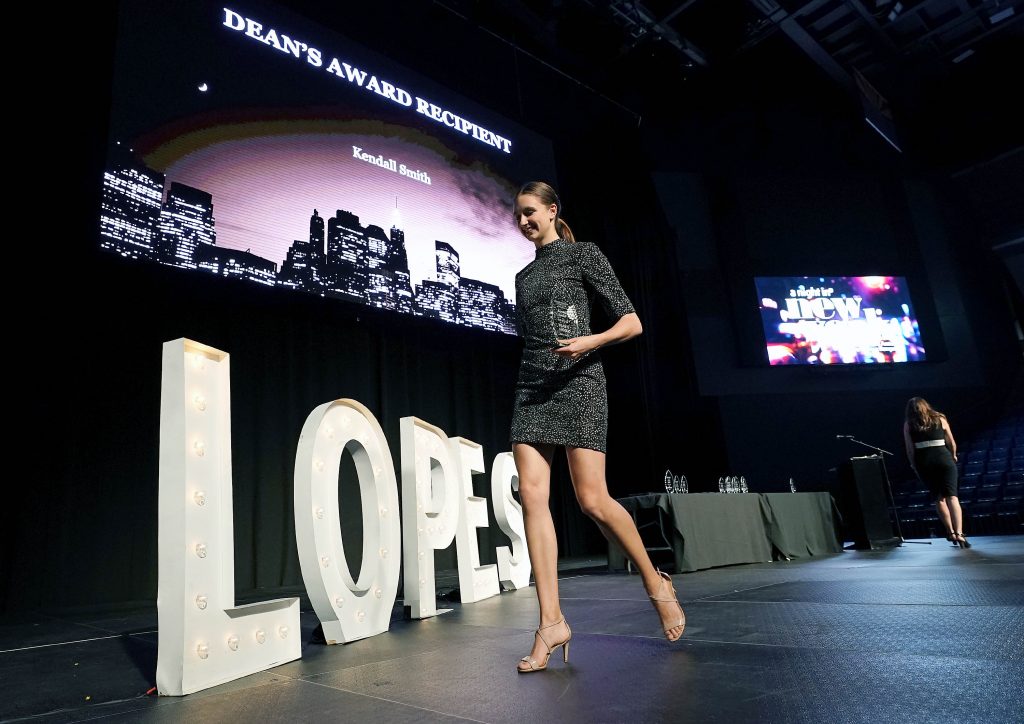
“With that, we wanted to help our students build resilience for the future. 'How can we really further strengthen the power of resilience, what it means to build a resilient mindset, what it means to work through different challenges in life – academically, personally, professionally – and how does that strengthen you in the end?'”
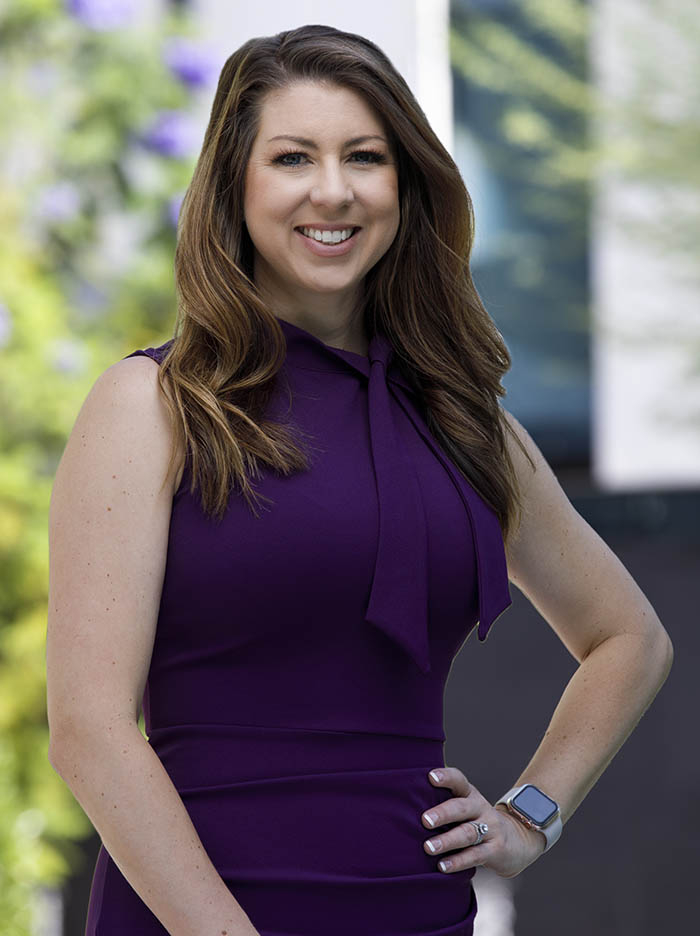
The biggest challenge for students as the Honors College moves into its second decade is accepting failure, at least from the standpoint of emphasizing to students that it's OK if they don’t earn a 4.0 grade point average or attain a near-perfect LSAT or MCAT score, despite their previous academic excellence.
This method has been discussed internally for a few years, with a reminder to embrace the path of learning and understanding failure and using those setbacks as learning moments students can grow from, according to Naegeli.
“We really tried to build on concepts of resilience and embrace the challenge that is presented in front of them while staying faithful to God,” Naegeli said. “I feel like with many honors students, things have been easier – not always easy – but they have a healthy track record of achieving excellence. And they may or may not have been met with resistance along the way.
“But in college, we want them to experience that resistance because that resistance builds resilience, grows their faith, and strengthens their character and what they're capable of accomplishing as a professional in the workplace beyond graduation.
“So we've really tried to encourage that. It’s not simply about students graduating with a diploma and a 4.0 GPA. But it's about graduating with a diploma and a wealth of experience that they can go articulate and share with future employers, future graduate school admissions boards, and really be able to share, 'This is what I've done – not my GPA – but here's what I've done, and here's what I've learned from that.’"
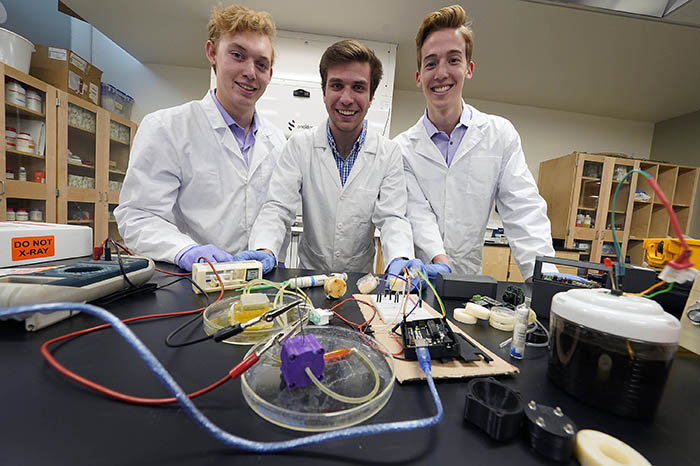
The STELLAR team persevered through two weeks of leaky equipment before producing a device (with Mueller’s signature) that contained liquids, withstood pressure and remained drip-free in a zero-gravity environment.
Meanwhile, first-time authors from the Honors College were appreciative of the constructive criticism they received in preparing and rewriting their manuscripts for the first Canyon Journal of Undergraduate Research (CJUR) last spring.
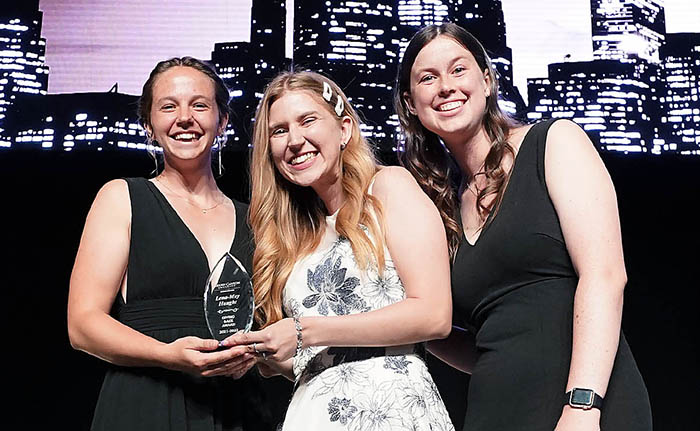
Lena-May Haught, who earned her bachelor’s degree in sociology last fall, espoused the same sentiments after realizing a heavy volume of research was required to fortify her manuscript.
“A lot of work went into it, but I thought it was worth it because I’m passionate about the project,” Haught, an Honors College graduate last fall, said shortly before her paper was accepted. Haught is enrolled in the city of Scottsdale Police Academy and hopes to work in a domestic violence/child abuse investigation department and help create “positive changes” in the way Arizona laws and policies serve families and victims.
“That research was important in our degree program at GCU, and it’s done me a lot of good to value that research and that academic component,” Haught said.
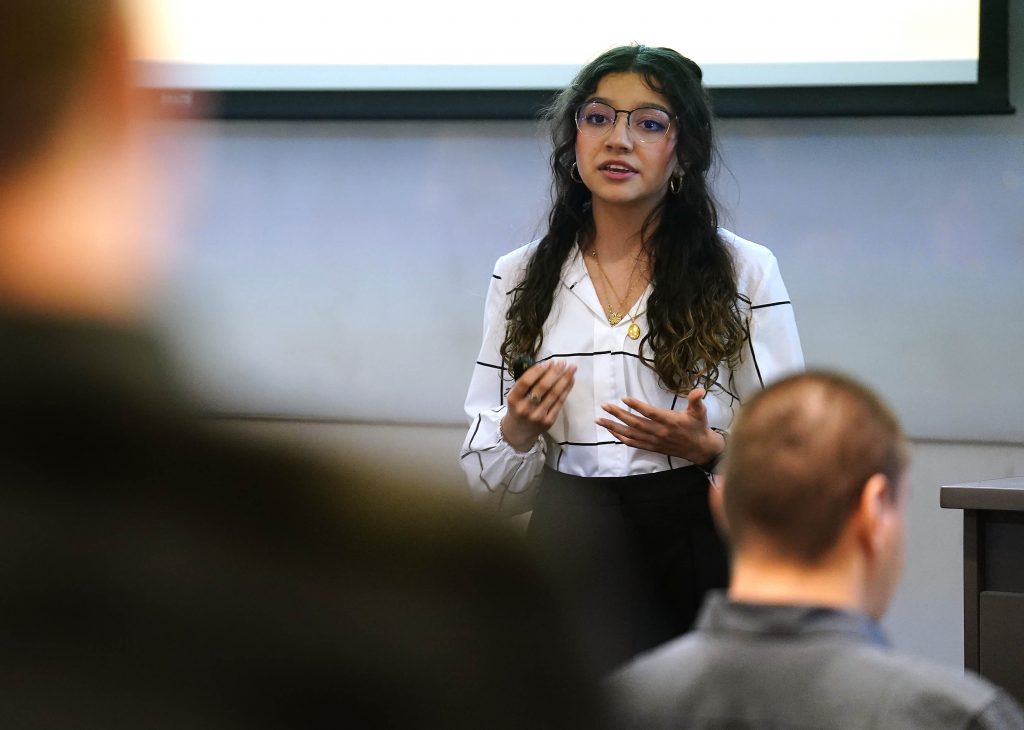
Naegeli is also proud of the diverse makeup of the Honors College. Students of color represent 38% of the program in the fall of 2022, and females make up 69% of the enrollment. Those numbers are similar at smaller liberal arts schools, according to Naegeli. GCU also has a large female presence in STEM-heavy programs.
“For us, I'm excited to feature how many STEM students we have, because that just shows the value we're adding to those students as they prepare for graduate and medical school,” Naegeli said.
“We've collaborated very closely with the College of Science, Engineering and Technology to roll out mentorship and preparation programs for students who are trying to compete for some of the best medical schools in the country. And we're seeing some great success with that.
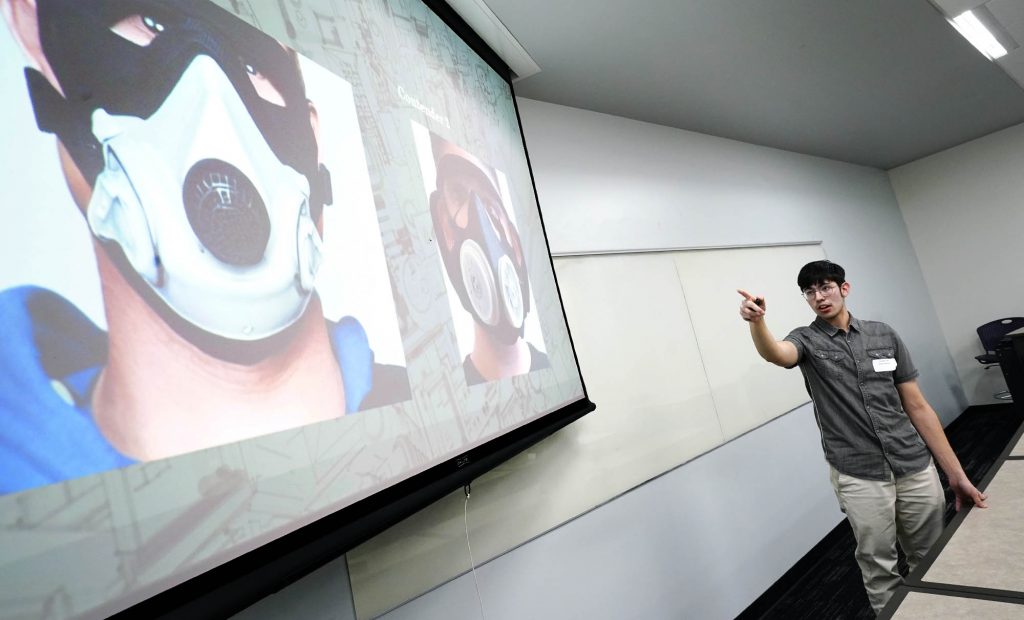
“I think that's why these students in these more rigorous and time-intensive programs are finding their way to the Honors College and taking advantage of those resources.”
CSET students make up nearly 36% of the Honors College enrollment.
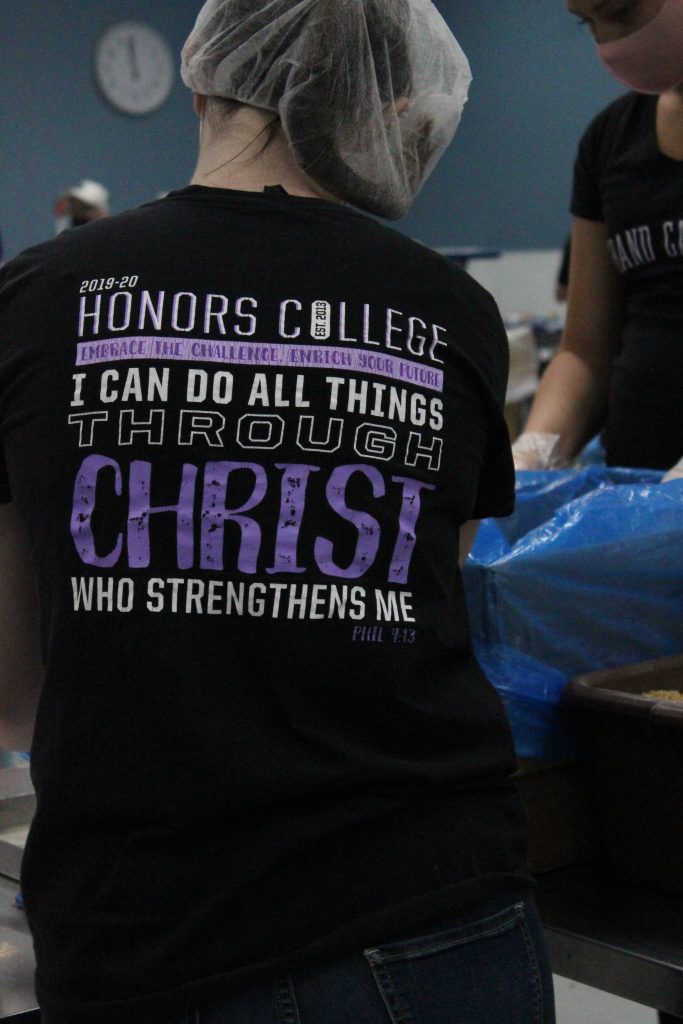
The average unweighted GPA on a 4.0 scale for the Honors College increased over the last year by nearly one-tenth of a percentage point to 3.9 – the largest increase in the program’s history, said Naegeli, adding that the average unweighted GPA was 4.12.
At the same time, administrators have welcomed applicants who compensate for less-than-perfect GPAs or test scores by devoting hundreds of hours of volunteer service work in their communities for their local churches, as well as business-minded applicants who have turned a profit in their teens.
“Going into our 10 years has really allowed us to pause, reflect and say, 'These are our pillars we were founded on – ethics, service, leadership, research, cultural awareness,’” Naegeli said. “But how do we elaborate on that to say, ‘OK, but this is what and how we do it. This is how we integrate that into the Honors experience and with everyone we work with, internal, external, our advisory board, and what do we want them to know about what we truly value?’
"That's where we came up with the (pillars) that you see, which is strength in a Christ-centered community, innovation through interdisciplinary collaboration, character and integrity, global exploration and engagement, a commitment to service and service-minded leadership, and then a commitment to lifelong learning. So those are really values that we hope to instill in our current students and graduates as they progress into their careers.”
Senior writer Mark Gonzales can be reached at [email protected]
***
Students enhance resumes, thanks to academic journal



































































